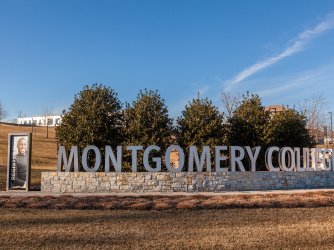Table of Contents
Speech Code of the Month: Rhode Island College
FIRE announces its Speech Code of the Month for July 2009: Rhode Island College.
Rhode Island College, a public college, has so many restrictive policies that it could be our Speech Code of the Month several times over. One policy in particular, however, really takes the cake—the Code of Social Responsibility for the college's residence halls. That policy provides that
[T]he Office of Residential Life & Housing will strongly support the Rhode Island College Sexual/Racial Harassment policies, and will not tolerate actions or attitudes that threaten the welfare of any of its members. (Emphasis added.)
The policy further states that "proscribed behaviors include" such things as "racially biased comments or racist humor" as well as "the display of materials that could be considered racist, sexist, homophobic or transphobic in suites or public areas of the residence halls." (Emphasis added).
The first problem is with the college's prohibition of certain "attitudes" on the part of its students. In addition to protecting freedom of expression, the First Amendment protects what is known as freedom of conscience—that is, the freedom to hold one's own thoughts and beliefs free from governmental intrusion. By attempting to regulate not only students' actions but also their attitudes, Rhode Island College is directly infringing on this important freedom. Indeed, a federal court ordered Shippensburg University (in Pennsylvania) to stop enforcing just such a policy after a 2003 lawsuit challenging the university's speech codes. Prior to the lawsuit, Shippensburg's Racism and Cultural Diversity Policy Statement provided that "Shippensburg University's commitment to racial tolerance, cultural diversity and social justice will require every member of the community to ensure that the principles of these ideals be mirrored in their attitudes and behaviors." (Emphasis added.)
While the prohibition on "actions" that threaten the welfare of fellow students is not necessarily objectionable on its face, the rest of the policy makes clear that the college defines "actions" to include not only speech, but in fact constitutionally protected speech. First, the policy explicitly prohibits any "racially biased comments," which—since many consider certain opinions on hot-button issues like affirmative action and illegal immigration to be racist—directly implicates the kind of core political expression that is at the heart of what the First Amendment protects. Even racially biased comments that are not strictly political expression typically constitute protected speech, unless they rise to the level of severity, pervasiveness, and offensiveness necessary to constitute racial harassment.
Next, the policy proscribes any "racist humor," again explicitly prohibiting constitutionally protected speech. Offensive humor, such as parody or satire, enjoys some of the strongest constitutional protection. In the case of Hustler v. Falwell, for example, the U.S. Supreme Court held that the First Amendment protected Hustler magazine's right to publish a satirical advertisement suggesting that the Reverend Jerry Falwell lost his virginity in a drunken encounter with his mother in an outhouse. Rhode Island College's prohibition of "racist humor" in its residence halls directly contradicts the Court's holding and is a total violation of the college's First Amendment obligations—obligations that the college explicitly recognizes in its Student Bill of Rights, where it states that "[a]ll students on this campus possess and retain the inalienable rights granted them by the United States Constitution."
Finally, the policy also prohibits the public display of any materials "that could be considered racist, sexist, homophobic or transphobic." Again, this prohibition directly threatens political expression; for example, a student organization's flyer advertising a speech by an opponent of gay marriage certainly "could be considered homophobic." Yet, if the college allows student organizations to advertise upcoming events in its residence halls, it cannot prohibit the posting of that particular flyer without being guilty of viewpoint discrimination in violation of the First Amendment. Additionally, the inclusion of the phrase "could be considered" gives the college unfettered discretion to decide which expression is banned under this prohibition, since the speech in question need not actually be racist, sexist, etc.—it is enough if it subjectively "could be considered" unacceptable according to some unspecified standard.
Overall, Rhode Island College's policies do an abysmal job of protecting students' free speech rights. Indeed, it is worth a look at the college's full Spotlight entry to see the extent of censorship there. Even among the college's many bad policies, however, the one described above is the worst of the worst. For this reason, Rhode Island College is our July 2009 Speech Code of the Month.
If you believe that your college or university should be a Speech Code of the Month, please e-mail speechcodes@thefire.org with a link to the policy and a brief description of why you think attention should be drawn to this code. If you are a current college student or faculty member interested in these issues, consider joining , a loose coalition of college faculty members and students dedicated to advancing individual liberties on their campuses. And if you would like to help fight abuses at universities nationwide, add to your blog, website, or Facebook profile and help shed some much-needed sunlight on these repressive policies.
Recent Articles
FIRE’s award-winning Newsdesk covers the free speech news you need to stay informed.

Australian regulator wants to dictate what the whole world can see online

Montgomery College student and faculty groups’ film screening canceled just minutes after college president’s 11th hour condemnation

Don’t turn commencement season into cancellation season
